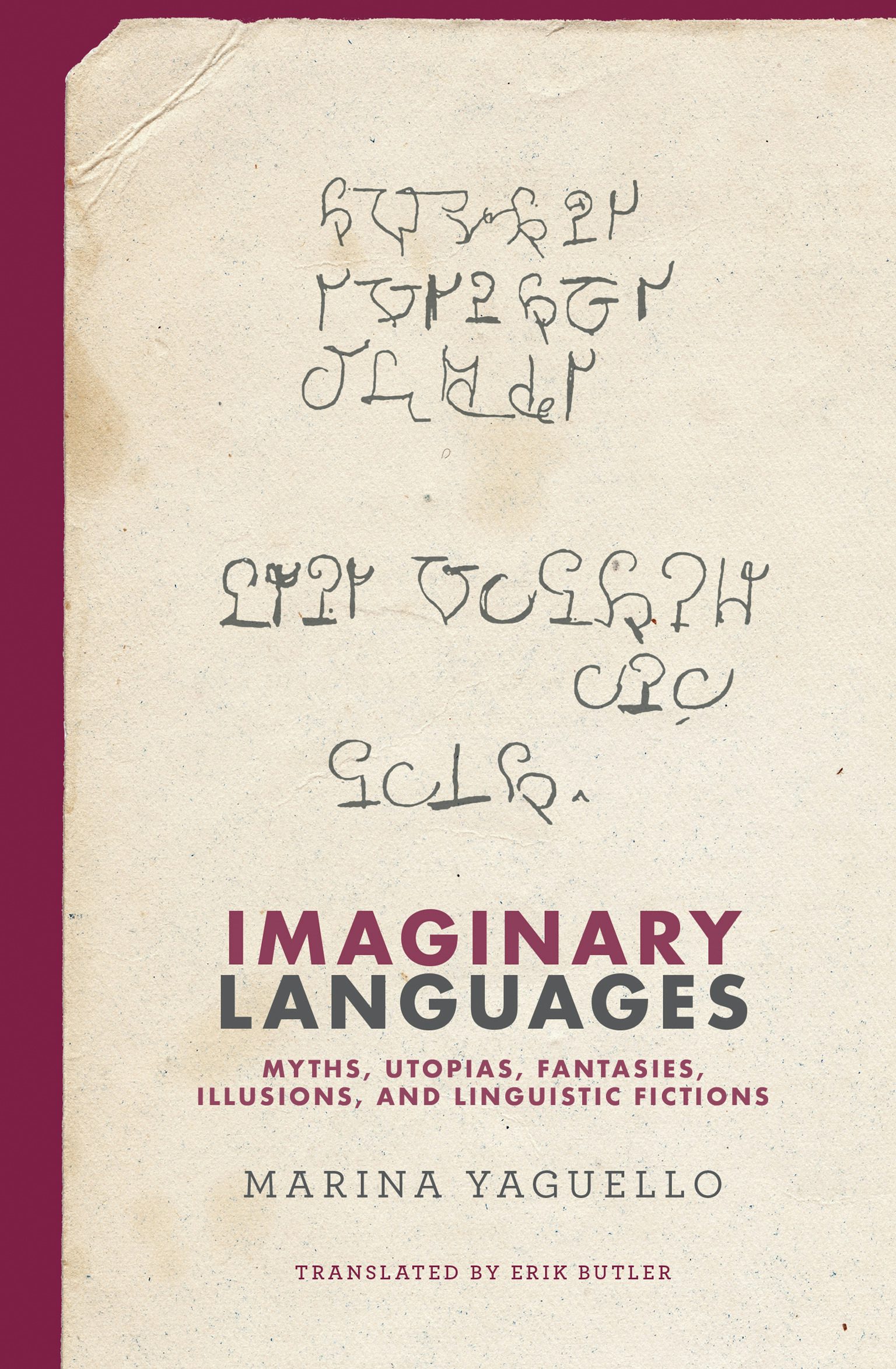Imaginary languages: myths, utopias, fantasies, illusions, and linguistic fictions
 An exploration of the practice of inventing languages, from speaking in tongues to utopian schemes of universality to the discoveries of modern linguistics.
An exploration of the practice of inventing languages, from speaking in tongues to utopian schemes of universality to the discoveries of modern linguistics.
In Imaginary Languages, Marina Yaguello explores the history and practice of inventing languages, from religious speaking in tongues to politically utopian schemes of universality to the discoveries of modern linguistics. She looks for imagined languages that are autonomous systems, complete unto themselves and meant for communal use; imaginary, and therefore unlike both natural languages and historically attested languages; and products of an individual effort to lay hold of language. Inventors of languages, Yaguello writes, are madly in love: they love an object that belongs to them only to the extent that they also share it with a community.
Yaguello investigates the sources of imaginary languages, in myths, dreams, and utopias. She takes readers on a tour of languages invented in literature from the sixteenth to the twentieth century, including that in More’s Utopia, Leibniz’s “algebra of thought,” and Bulwer-Lytton’s linguistic fiction. She examines the linguistic fantasies (or madness) of Georgian linguist Nikolai Marr and Swiss medium Hélène Smith; and considers the quest for the true philosophical language. Yaguello finds two abiding (and somewhat contradictory) forces: the diversity of linguistic experience, which stands opposed to unifying endeavors, and, on the other hand, features shared by all languages (natural or not) and their users, which justifies the universalist hypothesis.
Recent years have seen something of a boom in invented languages, whether artificial languages meant to facilitate international communication or imagined languages constructed as part of science fiction worlds. In Imaginary Languages (an updated and expanded version of the earlier Les Fous du langage, published in English as Lunatic Lovers of Language), Yaguello shows that the invention of language is above all a passionate, dizzying labor of love.
zum Buch im KatalogPlus
zum Buch auf der Verlags-Website
The animal other in narratives of conquest: uncanny encounters
 The Animal Other in Narratives of Conquest: Uncanny Encounters investigates the functions of nonhuman animal imagery in diverse narratives of the Conquest of the Americas. The author’s explications of film, poetry, literary and popular fiction, and theme park spaces draw on postcolonial and animal theory, deconstructive and Freudian literary criticism, and radical social theory. She argues that animals in these texts function on two levels: while they play a key role in the development of both Indigenous and European characters, depictions of their treatment and symbolic charge consistently work to disrupt narratives that seek to present the Conquest as a mutually beneficial „encounter“ between two cultures. The close readings of animal imagery in texts ranging from Pablo Neruda’s poetry to the animated film The Road to El Dorado represent a fresh approach to questions surrounding the depictions of Indigenous Americans and the motivations, tactics, and lasting contributions of the invading culture.
The Animal Other in Narratives of Conquest: Uncanny Encounters investigates the functions of nonhuman animal imagery in diverse narratives of the Conquest of the Americas. The author’s explications of film, poetry, literary and popular fiction, and theme park spaces draw on postcolonial and animal theory, deconstructive and Freudian literary criticism, and radical social theory. She argues that animals in these texts function on two levels: while they play a key role in the development of both Indigenous and European characters, depictions of their treatment and symbolic charge consistently work to disrupt narratives that seek to present the Conquest as a mutually beneficial „encounter“ between two cultures. The close readings of animal imagery in texts ranging from Pablo Neruda’s poetry to the animated film The Road to El Dorado represent a fresh approach to questions surrounding the depictions of Indigenous Americans and the motivations, tactics, and lasting contributions of the invading culture.
zum Buch im KatalogPlus
zum Buch auf der Verlags-Website
